March 9th, 2021 — 11:16pm
The Book of Lost Names by Kristin Harmel
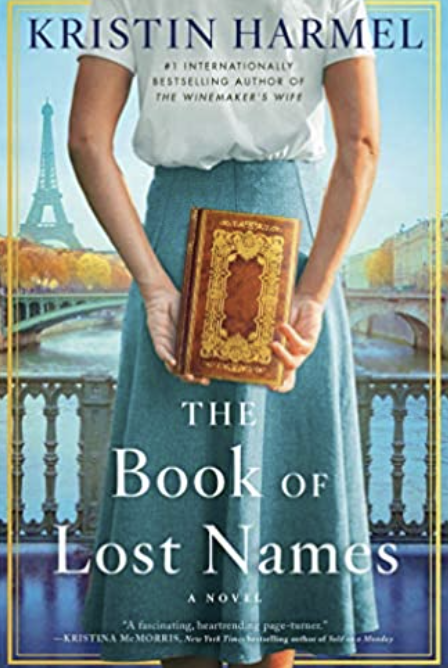 When I came across this outstanding book about the Holocaust, I was immediately reminded of all the excellent and meaningful books I have read about this subject. The first one probably being The Diary of Anne Frank and then so many other such interesting reads such as The Thief, The Nightingale, All the Light We Cannot See, Schindler’s List, as well as many others including many that I have not yet read.
When I came across this outstanding book about the Holocaust, I was immediately reminded of all the excellent and meaningful books I have read about this subject. The first one probably being The Diary of Anne Frank and then so many other such interesting reads such as The Thief, The Nightingale, All the Light We Cannot See, Schindler’s List, as well as many others including many that I have not yet read.
This story is about a woman who has skills, which make her an excellent forger, which allows her to save the lives of many children and adults as they escape from the Nazis. In doing so, she puts her own life at great risk. This triggers a familiar question, “Could I have put my own life at such a great risk if faced with a similar situation.” Most of us will never know, but as we experience the bravery of this woman, we are challenged to consider this question.
The story highlights the complexities of the parent-child relationship in this difficult situation. Factor in a love and romance and the conflicts of such feelings when the woman has these feelings towards a non-Jewish man that she never imagined could take place.
The great value of this book is not only that it is a well written adventure story with romance, intrigue, and danger, most important, it reminds us that Nazi Germany existed in the lifetime of some of us or in the lifespan of our parents and cannot be allowed to be forgotten.
Comment » | FH - Fiction Historical, FT- Fiction Thriller, HI - History
June 4th, 2016 — 12:30am
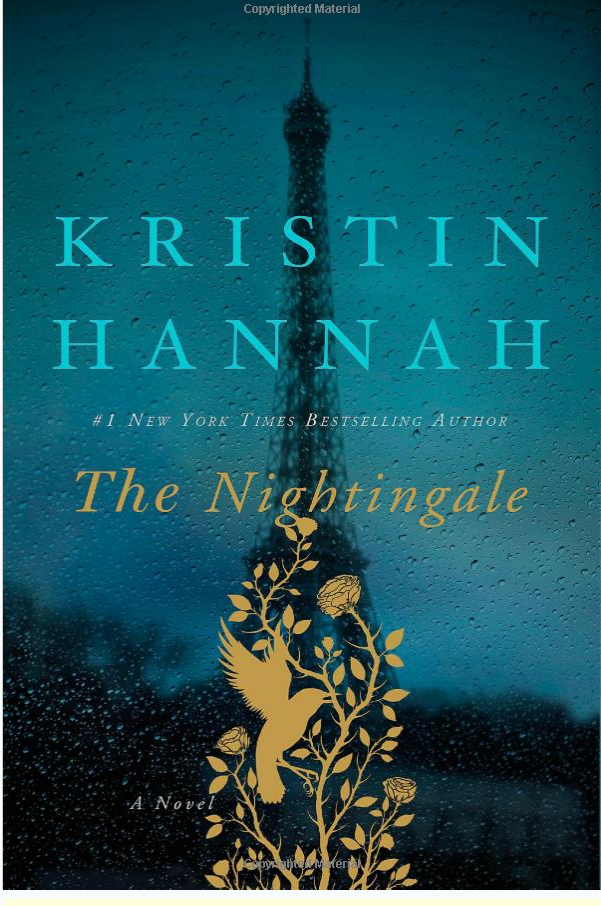 The Nightingale by Kristin Hannah
The Nightingale by Kristin Hannah
If there is any book that has greatly contributed to my understanding of the bravery and resilience of victims of Nazi, Germany it was The Diary of Anne Frank. That book was written by a teenage girl who was hiding in Amsterdam for two and half years until she and her family were betrayed and she was killed. There have been many subsequent books about World War II and the Holocaust. Yet none of them has done it better than The Nightingale by Kristin Hannah, an American novelist who was a lawyer turned writer. She did not go through any horrendous experiences as did Anne Frank and others in her own life but she obviously is a thorough researcher and a very skilled, sensitive writer who has written many successful novels prior to this number one bestseller.
Ms. Hannah has told the story how she came across the account of a Belgian woman, Andrea DeJoneg who was part of the underground resistance during World War II and guided many downed Allied pilots across the Pyrenees Mountains into Spain at the risk of her own life. Based on her research and her insight into the human psyche, Ms. Hannah was able to create the characters of this book. She recounted the acts of tremendous bravery that were shown by her protagonists and she was empathically able to describe their emotional experiences in a very believable manner.
The author focused mainly on women, particularly two sisters, Vianne and Isabelle Mauriac who were not Jewish and lived in Carriveau, a small French village that was occupied by the Nazis during World War II. The reader comes to understand the backstories of these women. Isabelle, the rebellious one, ultimately becomes a very brave woman who shepherds downed British and American pilots across the rugged mountains to safety, risking the severe repercussions which she knew would happen if she were caught.
Her sister Vianne became a heroine in her own right, hiding Jewish children when their parents were taken away by the Nazis. Her actions reawakened questions that we have asked ourselves over the years. Would we have taken in a child (or an adult) to hide or disguise them, when to have been discovered would not only endanger our lives but those of our children? There was another point in question raised by this book when at the end of the war Vianne is faced with the prospect of now having to give up her five- or six-year-old child that she has raised for the past few years when her Jewish friend was taken away to the concentration camps. Now after the war was over, relatives of the deceased Jewish parents want to take this child to America so family there can raise him. But perhaps the most challenging question that the characters in this book face is whether Vianne should tell her husband, who returned home after being a POW held by the Nazis, that the pregnancy with the child that he now feels is his child, but was actually conceived shortly before they reunited, is really the pregnancy of the brutal rape from the German officer who made her house his living quarters before he retreated with the Nazis when the Allies liberated France. Should she have told her husband the truth and should she now more than 40 years after the end of the war tell the truth to the now grownup child who is a successful surgeon and very attentive to his mother.
It is these stories as well as the vivid description of life in occupied France as well in the concentration camps, which are part of this novel that makes this book so unforgettable. It well deserves the acclaim that it is receiving and I’m sure it will be made into an unforgettable movie.
To obtain a copy of this book from Amazon, please click here
Comment » | FG - Fiction General, FH - Fiction Historical
August 25th, 2013 — 3:19pm
 The Guns At Last Light – The War In Western Europe by Rick Atkinson – This is the final book of a trilogy about the war in Western Europe. It begins with the plans for the Normandy invasion and concludes with the German surrender and the death of Hitler. For those of us who grew up in the post WWII years and have a certain attraction to the many great books that have detailed this war, this series stands to be the most comprehensive, complete and I would imagine the most accurate of the great books written on this subject .While I have not read the first two of this series, I base my opinion on the fact that Atkinson draws upon all the previous works as well as extensive quotes from the diaries and writings of the participants from Churchill, Eisenhower, Montgomery, De Gaulle etc., their aides, their wives, their letters as well as the reporters of the times such Severid, Murrow, Hemmingway, Pyle etc. He also includes the writings from the diaries and letters of the GIs who fought the war including many heart wrenching letters from soldiers who were subsequently killed in action. Needless to say he draws insights from both sides of the conflict. The book covers the big picture as well as the human view from the foxhole. You could easily say that the book was over detailed but on the other hand it didn’t seem to miss anything. Each chapter has a small map of where things stood at a particular time but it was really difficult to read and appreciate. On the other hand being able to follow the narrative clearly would require a large wall map in color on your wall that would change with every few pages. (In the future electronic books, i pads and computer readers should have a tab which one could go back and forth and see a full screen map with flashing or moving graphics.) The book captures the drama and the tension of planning and executing the crossing of the British Channel. Although we may have previously read about it or seen films about this subject, it is still almost impossible to fully appreciate the logistical miracle of carrying it out as well as the terrible loss of life, injury and emotional trauma that these hundreds of thousands of soldiers experienced. It is equally difficult to realize that the survivors and hundreds of thousands of new soldiers were to go through the horrific experience of the Battle of the Bulge and the painful march through Germany, crossing the Rhine and ultimate destruction of the German military. Imagine landing crafts filled with soldiers being destroyed before they reached the shore, gliders laden with troops being shot out of the sky or crashing into the ground. There are all sorts of horrendous descriptions of Sherman Tanks or German Panzer Tanks either bringing about tremendous destruction or being blown up themselves with their occupants going up in flames. The narrative while seemingly tracing every painful kilometer across France and Germany switches back and forth from the battle line to various command centers behind the lines where Eisenhower, Montgomery, Patten and lesser but well known names are interacting in person or through messages sent back and forth. We get insight into the personalities, of our leaders as well as conflicts with each other. We can appreciate their brilliance as well as their mistakes. Every decision that they would make, when to advance, when to pull back, which side to move, who would cover which flank, when to bomb etc. would invariably cost hundreds if not thousands of casualties or fatalities of their troops. Sometimes there would be “fratricide” where errors were made of bombarding our own troops. There is even material showing what was going on in the German headquarters with some insight into their personalities. Although no new ground was broken in understanding the mindset that brought about the concentration camps, the discovery of them, the horror that was seen and the allied reaction to it is all there. The epilogue which sums up the massive cost of this war in a wide range of parameters from the 56 million hand grenades used, to battlefield causalities of the Americans since D-Day which exceeded ¾ million of whom at least 165,000 were dead, plus 62,000 air casualties – half of them dead. British, Canadian, Polish and ancillary forces tallied combat losses of 194,000 including 42,000 killed. Of all German boys born between 1915 and 1924 1/3 were dead or missing. Some 14 percent of the Soviet population of 190 million perished during the war. After the war, the digging up of American bodies from German soil so no soldier was left behind is another story which is briefly chronicled and will pull on the emotions of the reader along with so many other episodes in this piece of world history. Throughout the 878 pages (one quarter of which is notes and references) I would periodically ask myself why I was so drawn to still another account of this Great War, however well written and complete it might be? For some it might be to fully appreciate the war of their fathers, grandparents or great grandparents, which is certainly part of the reason for me (although only my uncles were in this great war). However, I have come to understand for me and perhaps for others young and old, this book allows me to identify with these brave people as I try to answer the an unanswerable question. How would I have dealt with being a soldier and participating in the “Guns of Last Light?”
The Guns At Last Light – The War In Western Europe by Rick Atkinson – This is the final book of a trilogy about the war in Western Europe. It begins with the plans for the Normandy invasion and concludes with the German surrender and the death of Hitler. For those of us who grew up in the post WWII years and have a certain attraction to the many great books that have detailed this war, this series stands to be the most comprehensive, complete and I would imagine the most accurate of the great books written on this subject .While I have not read the first two of this series, I base my opinion on the fact that Atkinson draws upon all the previous works as well as extensive quotes from the diaries and writings of the participants from Churchill, Eisenhower, Montgomery, De Gaulle etc., their aides, their wives, their letters as well as the reporters of the times such Severid, Murrow, Hemmingway, Pyle etc. He also includes the writings from the diaries and letters of the GIs who fought the war including many heart wrenching letters from soldiers who were subsequently killed in action. Needless to say he draws insights from both sides of the conflict. The book covers the big picture as well as the human view from the foxhole. You could easily say that the book was over detailed but on the other hand it didn’t seem to miss anything. Each chapter has a small map of where things stood at a particular time but it was really difficult to read and appreciate. On the other hand being able to follow the narrative clearly would require a large wall map in color on your wall that would change with every few pages. (In the future electronic books, i pads and computer readers should have a tab which one could go back and forth and see a full screen map with flashing or moving graphics.) The book captures the drama and the tension of planning and executing the crossing of the British Channel. Although we may have previously read about it or seen films about this subject, it is still almost impossible to fully appreciate the logistical miracle of carrying it out as well as the terrible loss of life, injury and emotional trauma that these hundreds of thousands of soldiers experienced. It is equally difficult to realize that the survivors and hundreds of thousands of new soldiers were to go through the horrific experience of the Battle of the Bulge and the painful march through Germany, crossing the Rhine and ultimate destruction of the German military. Imagine landing crafts filled with soldiers being destroyed before they reached the shore, gliders laden with troops being shot out of the sky or crashing into the ground. There are all sorts of horrendous descriptions of Sherman Tanks or German Panzer Tanks either bringing about tremendous destruction or being blown up themselves with their occupants going up in flames. The narrative while seemingly tracing every painful kilometer across France and Germany switches back and forth from the battle line to various command centers behind the lines where Eisenhower, Montgomery, Patten and lesser but well known names are interacting in person or through messages sent back and forth. We get insight into the personalities, of our leaders as well as conflicts with each other. We can appreciate their brilliance as well as their mistakes. Every decision that they would make, when to advance, when to pull back, which side to move, who would cover which flank, when to bomb etc. would invariably cost hundreds if not thousands of casualties or fatalities of their troops. Sometimes there would be “fratricide” where errors were made of bombarding our own troops. There is even material showing what was going on in the German headquarters with some insight into their personalities. Although no new ground was broken in understanding the mindset that brought about the concentration camps, the discovery of them, the horror that was seen and the allied reaction to it is all there. The epilogue which sums up the massive cost of this war in a wide range of parameters from the 56 million hand grenades used, to battlefield causalities of the Americans since D-Day which exceeded ¾ million of whom at least 165,000 were dead, plus 62,000 air casualties – half of them dead. British, Canadian, Polish and ancillary forces tallied combat losses of 194,000 including 42,000 killed. Of all German boys born between 1915 and 1924 1/3 were dead or missing. Some 14 percent of the Soviet population of 190 million perished during the war. After the war, the digging up of American bodies from German soil so no soldier was left behind is another story which is briefly chronicled and will pull on the emotions of the reader along with so many other episodes in this piece of world history. Throughout the 878 pages (one quarter of which is notes and references) I would periodically ask myself why I was so drawn to still another account of this Great War, however well written and complete it might be? For some it might be to fully appreciate the war of their fathers, grandparents or great grandparents, which is certainly part of the reason for me (although only my uncles were in this great war). However, I have come to understand for me and perhaps for others young and old, this book allows me to identify with these brave people as I try to answer the an unanswerable question. How would I have dealt with being a soldier and participating in the “Guns of Last Light?”
Comment » | HI - History
 When I came across this outstanding book about the Holocaust, I was immediately reminded of all the excellent and meaningful books I have read about this subject. The first one probably being The Diary of Anne Frank and then so many other such interesting reads such as The Thief, The Nightingale, All the Light We Cannot See, Schindler’s List, as well as many others including many that I have not yet read.
When I came across this outstanding book about the Holocaust, I was immediately reminded of all the excellent and meaningful books I have read about this subject. The first one probably being The Diary of Anne Frank and then so many other such interesting reads such as The Thief, The Nightingale, All the Light We Cannot See, Schindler’s List, as well as many others including many that I have not yet read.
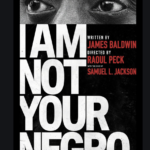
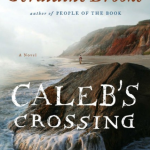


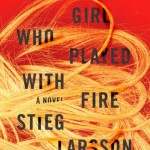
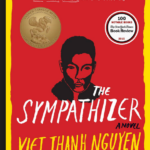
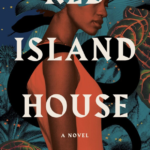
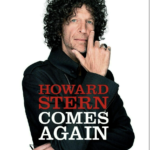

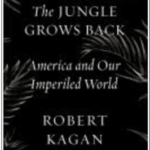



 The Nightingale by Kristin Hannah
The Nightingale by Kristin Hannah The Guns At Last Light – The War In Western Europe by Rick Atkinson – This is the final book of a trilogy about the war in Western Europe. It begins with the plans for the Normandy invasion and concludes with the German surrender and the death of Hitler. For those of us who grew up in the post WWII years and have a certain attraction to the many great books that have detailed this war, this series stands to be the most comprehensive, complete and I would imagine the most accurate of the great books written on this subject .While I have not read the first two of this series, I base my opinion on the fact that Atkinson draws upon all the previous works as well as extensive quotes from the diaries and writings of the participants from Churchill, Eisenhower, Montgomery, De Gaulle etc., their aides, their wives, their letters as well as the reporters of the times such Severid, Murrow, Hemmingway, Pyle etc. He also includes the writings from the diaries and letters of the GIs who fought the war including many heart wrenching letters from soldiers who were subsequently killed in action. Needless to say he draws insights from both sides of the conflict. The book covers the big picture as well as the human view from the foxhole. You could easily say that the book was over detailed but on the other hand it didn’t seem to miss anything. Each chapter has a small map of where things stood at a particular time but it was really difficult to read and appreciate. On the other hand being able to follow the narrative clearly would require a large wall map in color on your wall that would change with every few pages. (In the future electronic books, i pads and computer readers should have a tab which one could go back and forth and see a full screen map with flashing or moving graphics.) The book captures the drama and the tension of planning and executing the crossing of the British Channel. Although we may have previously read about it or seen films about this subject, it is still almost impossible to fully appreciate the logistical miracle of carrying it out as well as the terrible loss of life, injury and emotional trauma that these hundreds of thousands of soldiers experienced. It is equally difficult to realize that the survivors and hundreds of thousands of new soldiers were to go through the horrific experience of the Battle of the Bulge and the painful march through Germany, crossing the Rhine and ultimate destruction of the German military. Imagine landing crafts filled with soldiers being destroyed before they reached the shore, gliders laden with troops being shot out of the sky or crashing into the ground. There are all sorts of horrendous descriptions of Sherman Tanks or German Panzer Tanks either bringing about tremendous destruction or being blown up themselves with their occupants going up in flames. The narrative while seemingly tracing every painful kilometer across France and Germany switches back and forth from the battle line to various command centers behind the lines where Eisenhower, Montgomery, Patten and lesser but well known names are interacting in person or through messages sent back and forth. We get insight into the personalities, of our leaders as well as conflicts with each other. We can appreciate their brilliance as well as their mistakes. Every decision that they would make, when to advance, when to pull back, which side to move, who would cover which flank, when to bomb etc. would invariably cost hundreds if not thousands of casualties or fatalities of their troops. Sometimes there would be “fratricide” where errors were made of bombarding our own troops. There is even material showing what was going on in the German headquarters with some insight into their personalities. Although no new ground was broken in understanding the mindset that brought about the concentration camps, the discovery of them, the horror that was seen and the allied reaction to it is all there. The epilogue which sums up the massive cost of this war in a wide range of parameters from the 56 million hand grenades used, to battlefield causalities of the Americans since D-Day which exceeded ¾ million of whom at least 165,000 were dead, plus 62,000 air casualties – half of them dead. British, Canadian, Polish and ancillary forces tallied combat losses of 194,000 including 42,000 killed. Of all German boys born between 1915 and 1924 1/3 were dead or missing. Some 14 percent of the Soviet population of 190 million perished during the war. After the war, the digging up of American bodies from German soil so no soldier was left behind is another story which is briefly chronicled and will pull on the emotions of the reader along with so many other episodes in this piece of world history. Throughout the 878 pages (one quarter of which is notes and references) I would periodically ask myself why I was so drawn to still another account of this Great War, however well written and complete it might be? For some it might be to fully appreciate the war of their fathers, grandparents or great grandparents, which is certainly part of the reason for me (although only my uncles were in this great war). However, I have come to understand for me and perhaps for others young and old, this book allows me to identify with these brave people as I try to answer the an unanswerable question. How would I have dealt with being a soldier and participating in the “Guns of Last Light?”
The Guns At Last Light – The War In Western Europe by Rick Atkinson – This is the final book of a trilogy about the war in Western Europe. It begins with the plans for the Normandy invasion and concludes with the German surrender and the death of Hitler. For those of us who grew up in the post WWII years and have a certain attraction to the many great books that have detailed this war, this series stands to be the most comprehensive, complete and I would imagine the most accurate of the great books written on this subject .While I have not read the first two of this series, I base my opinion on the fact that Atkinson draws upon all the previous works as well as extensive quotes from the diaries and writings of the participants from Churchill, Eisenhower, Montgomery, De Gaulle etc., their aides, their wives, their letters as well as the reporters of the times such Severid, Murrow, Hemmingway, Pyle etc. He also includes the writings from the diaries and letters of the GIs who fought the war including many heart wrenching letters from soldiers who were subsequently killed in action. Needless to say he draws insights from both sides of the conflict. The book covers the big picture as well as the human view from the foxhole. You could easily say that the book was over detailed but on the other hand it didn’t seem to miss anything. Each chapter has a small map of where things stood at a particular time but it was really difficult to read and appreciate. On the other hand being able to follow the narrative clearly would require a large wall map in color on your wall that would change with every few pages. (In the future electronic books, i pads and computer readers should have a tab which one could go back and forth and see a full screen map with flashing or moving graphics.) The book captures the drama and the tension of planning and executing the crossing of the British Channel. Although we may have previously read about it or seen films about this subject, it is still almost impossible to fully appreciate the logistical miracle of carrying it out as well as the terrible loss of life, injury and emotional trauma that these hundreds of thousands of soldiers experienced. It is equally difficult to realize that the survivors and hundreds of thousands of new soldiers were to go through the horrific experience of the Battle of the Bulge and the painful march through Germany, crossing the Rhine and ultimate destruction of the German military. Imagine landing crafts filled with soldiers being destroyed before they reached the shore, gliders laden with troops being shot out of the sky or crashing into the ground. There are all sorts of horrendous descriptions of Sherman Tanks or German Panzer Tanks either bringing about tremendous destruction or being blown up themselves with their occupants going up in flames. The narrative while seemingly tracing every painful kilometer across France and Germany switches back and forth from the battle line to various command centers behind the lines where Eisenhower, Montgomery, Patten and lesser but well known names are interacting in person or through messages sent back and forth. We get insight into the personalities, of our leaders as well as conflicts with each other. We can appreciate their brilliance as well as their mistakes. Every decision that they would make, when to advance, when to pull back, which side to move, who would cover which flank, when to bomb etc. would invariably cost hundreds if not thousands of casualties or fatalities of their troops. Sometimes there would be “fratricide” where errors were made of bombarding our own troops. There is even material showing what was going on in the German headquarters with some insight into their personalities. Although no new ground was broken in understanding the mindset that brought about the concentration camps, the discovery of them, the horror that was seen and the allied reaction to it is all there. The epilogue which sums up the massive cost of this war in a wide range of parameters from the 56 million hand grenades used, to battlefield causalities of the Americans since D-Day which exceeded ¾ million of whom at least 165,000 were dead, plus 62,000 air casualties – half of them dead. British, Canadian, Polish and ancillary forces tallied combat losses of 194,000 including 42,000 killed. Of all German boys born between 1915 and 1924 1/3 were dead or missing. Some 14 percent of the Soviet population of 190 million perished during the war. After the war, the digging up of American bodies from German soil so no soldier was left behind is another story which is briefly chronicled and will pull on the emotions of the reader along with so many other episodes in this piece of world history. Throughout the 878 pages (one quarter of which is notes and references) I would periodically ask myself why I was so drawn to still another account of this Great War, however well written and complete it might be? For some it might be to fully appreciate the war of their fathers, grandparents or great grandparents, which is certainly part of the reason for me (although only my uncles were in this great war). However, I have come to understand for me and perhaps for others young and old, this book allows me to identify with these brave people as I try to answer the an unanswerable question. How would I have dealt with being a soldier and participating in the “Guns of Last Light?”